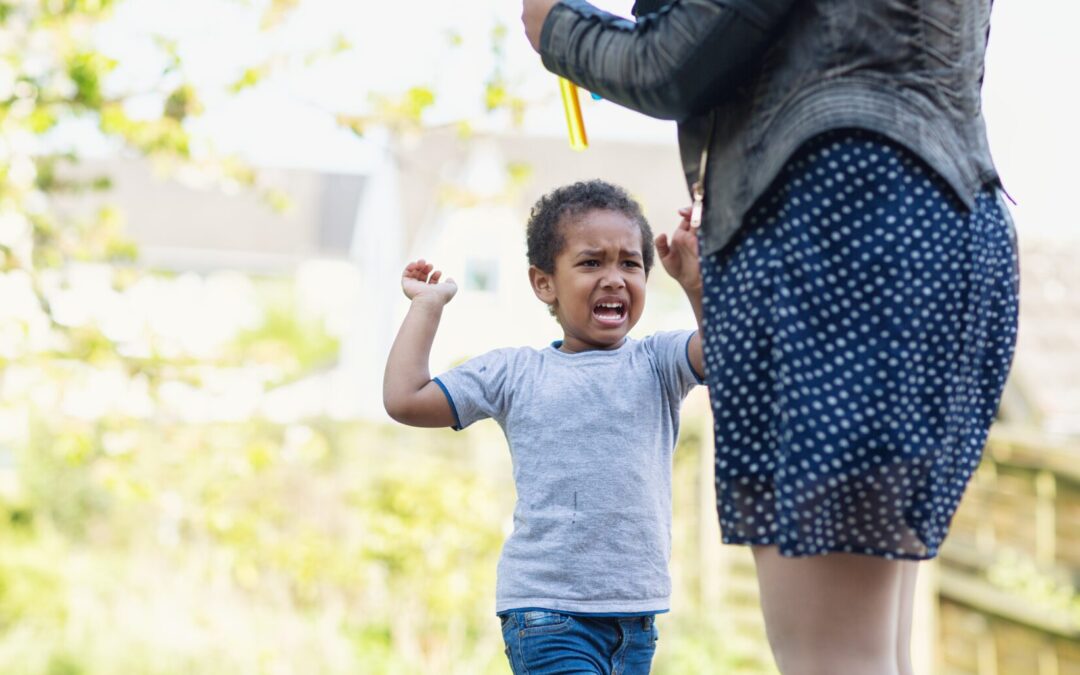There’s nothing worse than that sinking feeling when you get called from school about your child hitting another student.
It can be confusing and scary, especially if your child is autistic (autistic child hitting at school).
But hey, you’re not alone in this.
Lots of parents face this challenge, and the good news is, there are ways to understand why it’s happening and find solutions to help your child.
How do I stop my autistic child from hitting others at school?
Think of it like this: your child is an amazing little explorer in a giant, sometimes overwhelming world. Unlike us grown-ups, they might not always have the words to express when things get too much, or how they’re feeling frustrated. Hitting can sometimes be their way of saying:
- “Whoa, this is too much!” Maybe the classroom is super loud, the lights are too bright, or they’re having trouble with a task. Sensory overload is a real thing, and it can be hard to handle for anyone, especially little ones.
- “Hey, I need some attention here!” Sometimes, even negative attention feels better than none. If your child is feeling lost in the crowd, a hit might be their way of getting someone to notice them.
- “Wait, what do I do now?” Social interaction can be a tricky game, even for grown-ups! Your child might not understand the rules of personal space or how to interact appropriately.
Here are some superhero moves you can use to help your child:
- Team Up with the Teachers: Open communication is key! Chat with your child’s teachers about what triggers you’ve noticed at home and work together to create a safe and supportive learning environment for your little explorer. Think of them as your teammates on this adventure!
- Visual Aids and Routines: Imagine a treasure map that helps you find your way. Visual schedules and social stories can act as a roadmap for your child, helping them understand what’s coming next and what’s expected throughout the school day.
- Positive Reinforcement, Like a Superpower! Everyone loves a good reward, right? Focus on praising your child for using their words to express needs, taking breaks when things get overwhelming, or using their awesome problem-solving skills. This positive reinforcement helps them understand what kind of behavior leads to happy results.
- Social Skills Boot Camp: Think of it like training for the social interaction Olympics! Role-playing different situations and practicing appropriate ways to greet others, share toys, or ask for help can equip your child with the skills they need to feel confident in social settings.
How to discipline an autistic child?
Here’s the thing: punishment is like yelling at a lost puppy. It doesn’t tell them where to go, and it might just make them more scared.
Instead, let’s focus on gentle ways to guide your child towards the right path.
- Redirect: See your child getting frustrated? Gently steer them towards a calming activity, like taking a few deep breaths or squeezing a stress ball. This helps them cool down and find a better way to communicate their needs.
- Natural Consequences: Think of it as cause and effect, but way less dramatic. If a hit results in a lost toy, calmly explain why and offer a way to earn it back with positive behavior. This helps them understand the connection between their actions and the outcome.
- Positive Time-Outs: Sometimes, everyone needs a superhero landing! If your child needs a break, offer a quiet space to calm down and regain composure. This is different from punishment because it focuses on helping them regulate their emotions, not making them feel bad.
Remember:
Every child is unique, like a one-of-a-kind superhero.
What works for one child might not work for another. Be patient and work with your child’s therapist and teachers to find the best approach for them. Focus on celebrating their successes, no matter how small, to encourage them on their journey.
How do you deal with a violent autistic child?
This can be a scary term, and it’s important to remember that most autistic children who hit aren’t intentionally trying to be violent.
They’re just struggling to communicate their needs in a way that feels comfortable for them.
Here’s the thing: sometimes “violent” can feel like a big, scary monster under the bed. But what if we could turn that monster into a manageable situation? Here are some tips:
- Stay Calm, You Got This!: It’s easy to feel overwhelmed when things get heated, but remember, your child feeds off your energy. Taking a deep breath and staying calm will help you think clearly and respond in a way that helps your child.
- De-escalation is Your Superpower!: Think of yourself as a superhero who can calm any situation. If your child is starting to get upset, try offering them a calming activity like squeezing a stress ball, listening to calming music, or taking some deep breaths together.
- Identify the Triggers: Just like some people get grumpy when they’re hungry, your child might have specific situations that make them more likely to hit. Working with your child’s therapist or teachers can help you identify these triggers and develop strategies to avoid them or manage them effectively.
- Focus on Communication: Remember, hitting is often a way for your child to communicate a need. Help them learn to express themselves with words, gestures, or pictures. This will give them a more positive way to get their point across.
Remember:
There’s no one-size-fits-all solution, and what works for one child might not work for another. The key is to stay patient, positive, and work with your child’s team to find the strategies that work best for them.
Msitua Can Help!
If you’re looking for some extra support for your amazing autistic child who’s hitting at school (autistic child hitting at school), Msitua can be your sidekick.
We have a team of experienced professionals who can work with you, your child, and their school to develop a personalized plan that addresses their specific needs.
And unlike many other providers, we don’t have a waitlist.
Contact us today for a free consultation and let’s work together to help your child thrive at school and beyond.
Here are some additional resources that you might find helpful:
- The National Autistic Society: National Autistic Society offers a wealth of information and support for parents of autistic children.
- The Autistic Self Advocacy Network: Autistic Self Advocacy Network is a great resource for learning about autism from the perspective of autistic individuals themselves.
- The Center on the Developing Child at Harvard University: Center on the Developing Child at Harvard University provides research-based information on child development, including resources on social-emotional development in autistic children.
Remember, there is no shame in seeking help.
You’re a fantastic parent who wants the best for your child, and there are people and resources available to support you on this journey. With the right team in place, your child can develop the skills and confidence they need to shine in all areas of life.
So reach out, ask questions, and don’t be afraid to explore all the possibilities.

